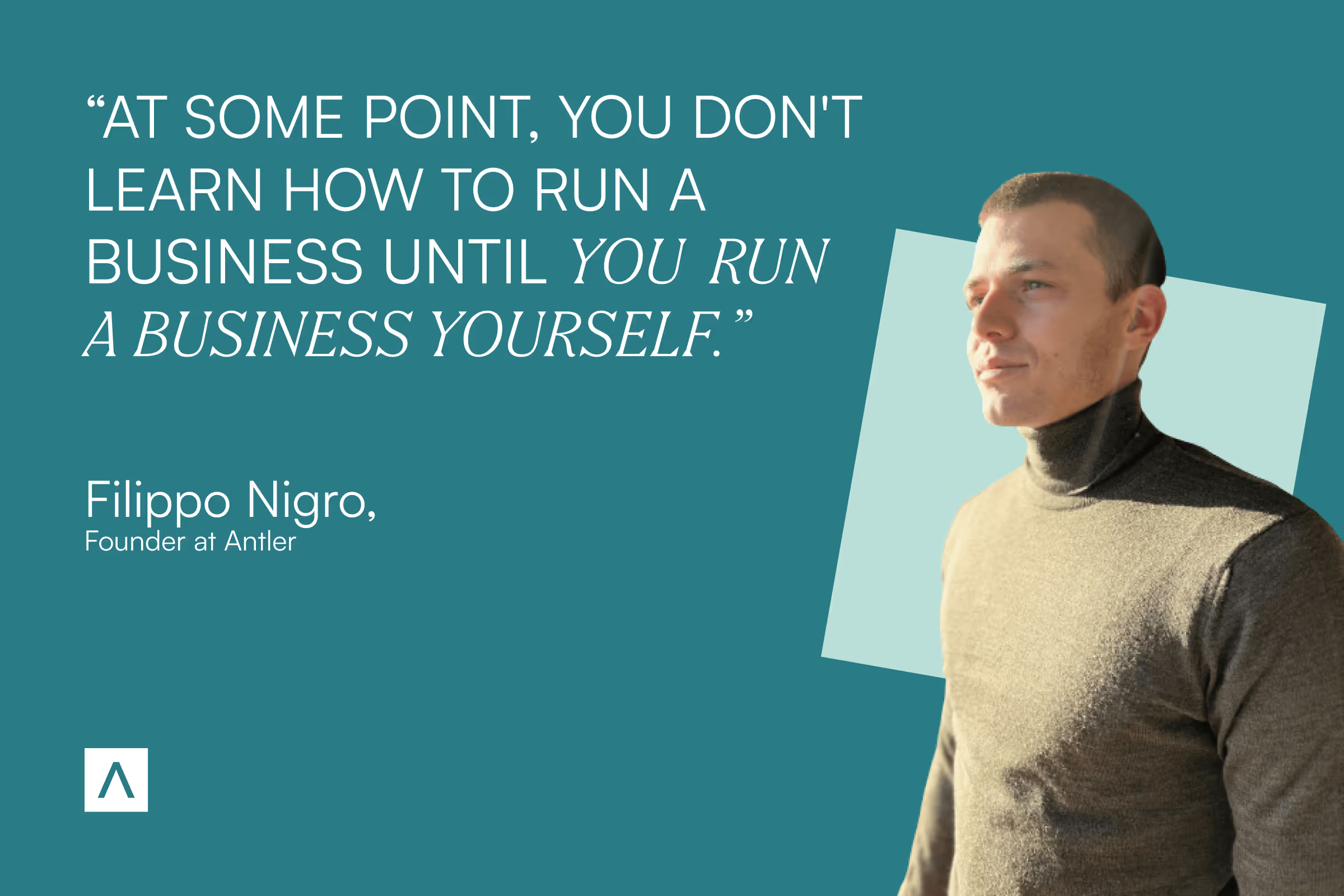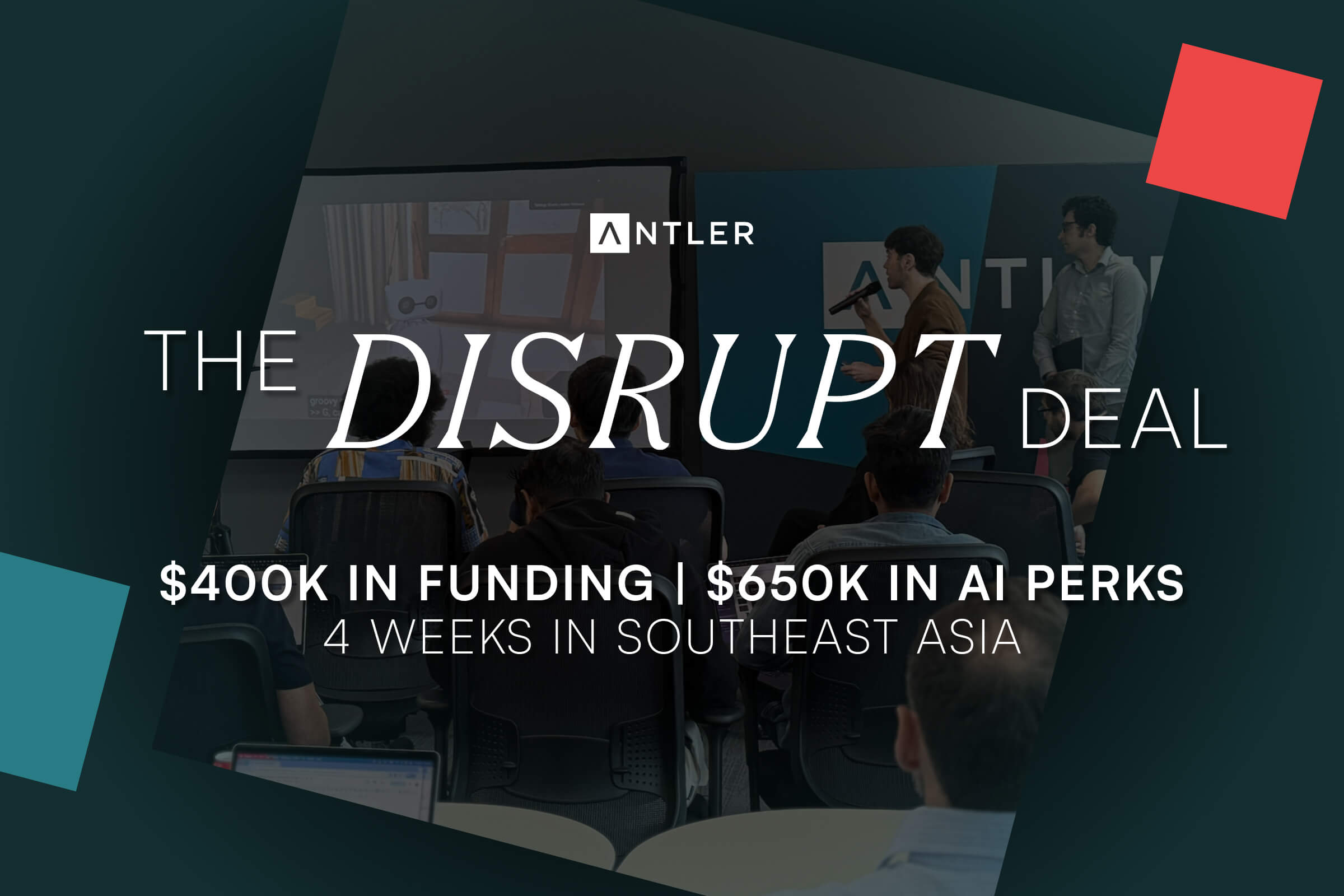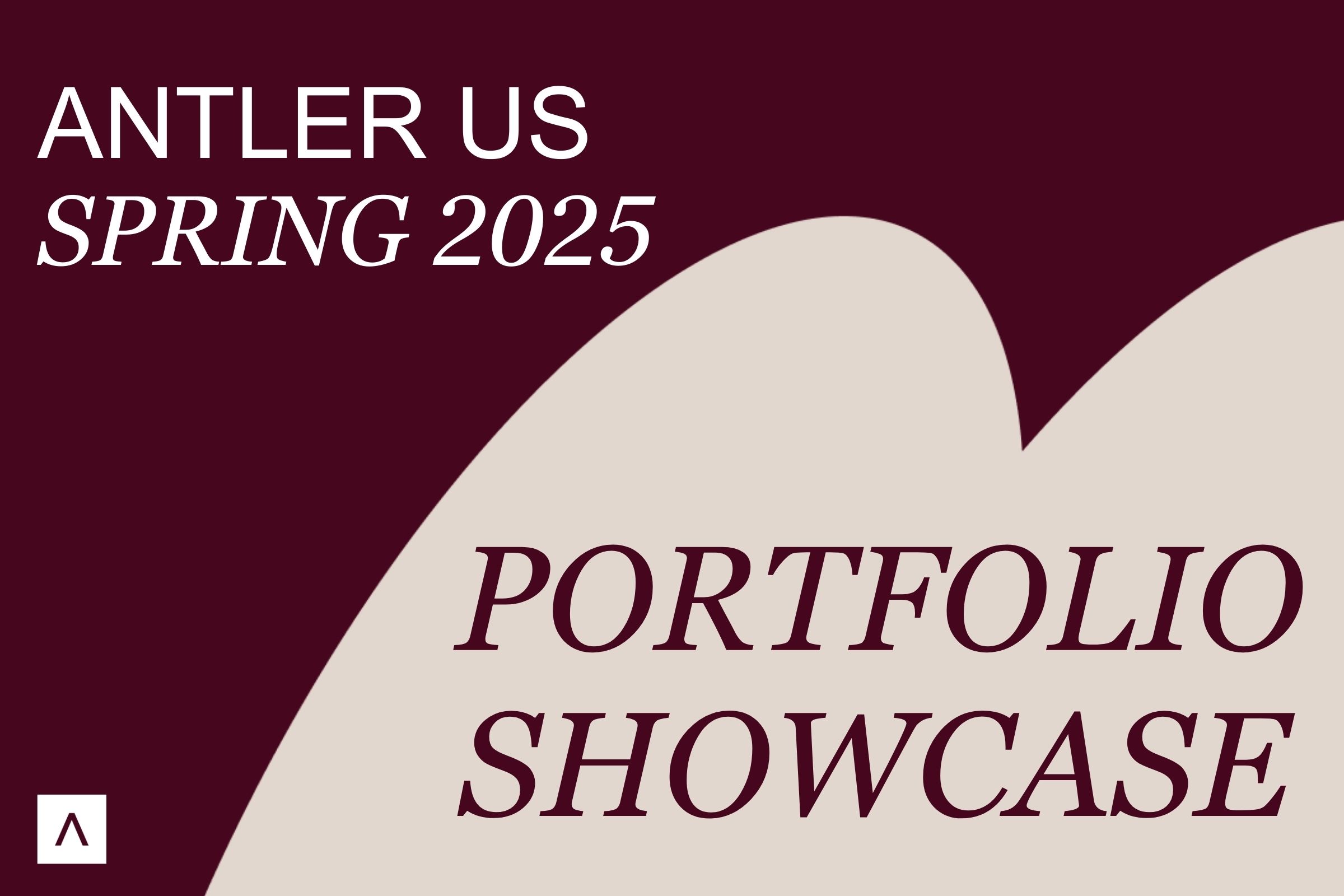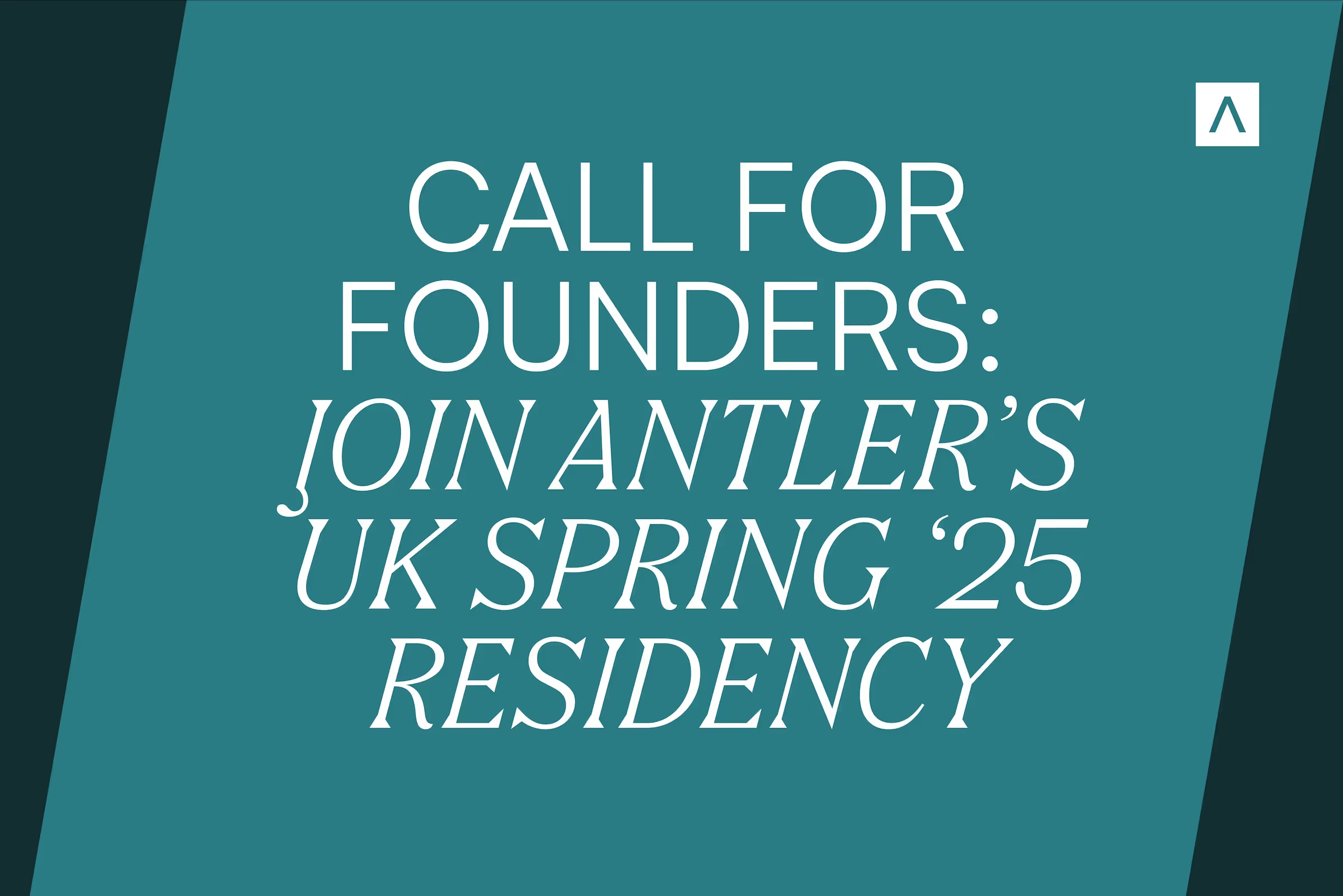Welcome to Antler, Filippo! Could you tell us a little bit about yourself and your background?
Sure, I come from a business background. I studied international management and business administration in the US, Italy and China. Since almost everyone in my class went into finance or consulting, I started out in investment banking, but quickly realized that it wasn't very useful for my goal of starting a business. So I thought that the best places for startups in Europe are probably the UK and Germany and I was lucky enough to have a friend who worked in venture capital in Germany who connected me with an early-stage machine learning startup.
"The best places for startups in Europe are probably the UK and Germany"
We were only five people at the time, and I took care of business development and a little bit of everything, of course. To start my own company, I had this idea in my head to get this 360 background first. So in the summer I joined the strategic products team at HomeToGo, which was already a larger startup at the time. As the first employee on a newly formed team, the director and I started building new business verticals and new products from scratch. The team grew quickly and I ended up working as a product manager, coordinating product development between project managers and engineers. In parallel, I took a couple of online courses in machine learning and biotechnology to expand my knowledge in these areas.
Why is now the right time to found your own start-up?
To be honest, I made this decision while I was still studying at Bocconi. I told myself that I wanted to start my own business in five to six years, and I thought about how I could prepare myself as much as possible for that moment. So I ended up working in early- and late-stage startups, covering both business development and product development. So I already had a kind of roadmap in my head, and when I realized that my learning curve was flattening out, I quit. It was hard for me to think of anything other than starting my own business. And honestly, I'm still pretty young, so the opportunity cost of not starting a business is much higher.
Why did you decide to build your company with Antler?
After talking to several people about my project, I realized that I would need a technical co-founder because I was developing a technically challenging idea. It was difficult to find people who were highly qualified, wanted to start a business, and had skills that complemented mine. People in my network recommended this program to me, and I thought their track record and brand would attract very strong talent, which was exactly what I was looking for. I had applied to other programs as well, but talking to Alan and Yash during the interviews, the team made the difference in my decision in the end.
We’ve just wrapped up the first month of your cohort. How has the experience been so far?
Fun, intense and full of learning. These are the three aspects. You get to know a lot of people, you are constantly confronted with new topics and challenges, and at the same time you have regular meetings with the investment team. I think that the structure of the program is very helpful because you are also expected to present your progress. So it really helps you accelerate your progress, but you also learn a lot through content sessions, for example, to understand what investors are looking for today.
What are you currently working on and where do you want to be by the end of the year?
I am currently working on a project in the med tech space. The problem I am trying to solve is late diagnosis and prevention. About 75% of patients are diagnosed late, which leads to an increase in mortality. And if you look at the patient's diagnostic pathway, there are many painful and time-consuming segments. Costly, invasive and often not available diagnostic tools.
"Costly, invasive and often not available diagnostic tools"
So I'm working on a solution that uses data collected by a smartphone sensor and machine learning to diagnose diseases and make the diagnosis easily accessible to people so they can check themselves more regularly and avoid the problem of an overdue diagnosis. That's the overall goal of course, I'm working on a more specific problem right now, and ideally by the end of the year I will have found a specific solution that best addresses that problem. I also want to have a working prototype with some users and a funding round behind me by the end of the year.
Last but not least: Do you have any tips for entering the startup scene?
I think the best way to get into the industry is to work in startups, so you learn how it works and the dynamics of it. For me, it was very helpful to plan in advance exactly what aspects I wanted to learn and what skills I needed to acquire. So if you want to start your own business, you should think about what business you want to start, and then try to work in a startup that gives you that perspective. And then, after a while, you should just do it. I don't think you have to think about it too much and have years of experience. Because after a certain point, you don't learn how to run a business until you run a business yourself.
To find the people and funding you need to build a world-changing company, apply to an Antler residency.











